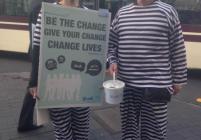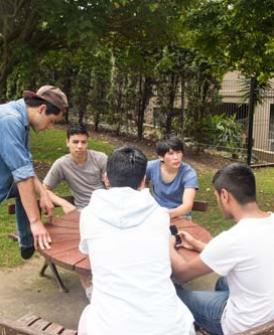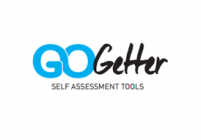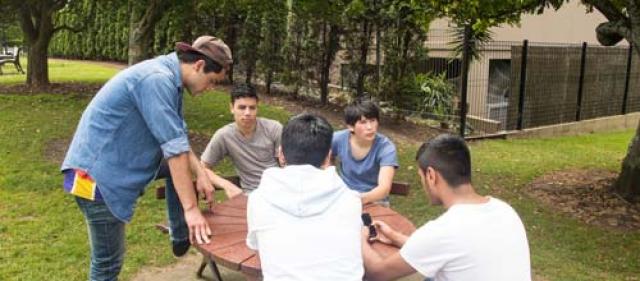Suicide
Suicide
Topics in this section:
- Common questions about suicidal feelings
- Create your own safety plan
- Other tips for staying safe
- Suicide Prevention song by Logic
What do I do if I feel like it's an emergency?
- Call 111
- Go to the emergency department at your nearest hospital
- Call your local mental health crisis team. Click here for a list or ring Healthline on 0800 611 116
I’m having thoughts of harming myself and need emotional support. Is there someone I can call?
- Call Youthline on 0800 37 66 33 or free-text 234
- Call Lifeline on 0800 543 354
Why am I having these thoughts?
Having these thoughts is actually more common than most people realise. When people feel hopeless, trapped or unhappy, it’s natural to want those feelings to go away or want your situation to change. Sometimes that means people start thinking of death as an option - but actually, many people agree that if they could change their situation, they wouldn't feel like ending their life anymore. This is an indication that really most people don't want to end their life, they want to end the pain they are experiencing.
Does this mean I am going crazy?
Absolutely not! Just because you’re having these thoughts, it doesn’t mean you are doomed or that you will always feel this way or that you are going to get worse. In fact, having these thoughts are your brains way of telling you that you want things to change and you want the pain to go away. For many people, this is often the first step to getting help and support.
Even though these thoughts may seem really overwhelming, it's important to remember that you are still in control of your body and your actions. With the right steps at the right time, these thoughts can and do go away, even if they are really full on.
It can be helpful to have a plan in place for when these thoughts come on. Follow the steps below to create your own safety plan - make sure you have a pen and paper.
Step 1. Recognise.
Think about high-risk or triggering situations (like certain people, places or thinking patterns, as well as drug and alcohol use) and do your best to avoid these or if you can’t avoid them, prepare to get support afterwards.
To do: Write down all the warning signs and triggers you recognise by answering these questions.
- When do you start to feel worse?
- What tends to happen before those thoughts come on?
- Are there things that make you think about harming yourself? Like when you are with or fight with certain people? When you drink? When you go to a particular place?
Step 2.Get rid of any ways you could harm yourself.
This may seem like a really hard step, but if you’re in a bad space, it’s best to get rid of the means so that you have some time to think about other options rather than taking steps to harm yourself.
To do: write down how you will get rid of the things around you that you could use to harm yourself or places that are unsafe for you to be.
Step 3: Grounding.
Refocusing your mind and grounding your body can help you feel safe again pretty quickly. Often this is enough for the thoughts to ease off and feel less overwhelming.
Some suggestions…
- Do some deep and slow breathing
- Do a meditation
- Go for a walk
- Listen to music
- Make a favourite homemade meal
- Have a cup of tea and a breather
- Take a shower or bath
- Have a nap snuggled under the covers
- Writing or drawing in a journal
- Watching TV, a dvd or Youtube clips
- Going on social media and websites
- Playing a puzzle or game online or on your phone
- Read a book or magazine
- Plan and organise the space you’re in or upcoming occasions
To do: Write a list for yourself of the things you enjoy doing that help you feel calm or uplifted. Put a star next to at least two that you know you’ll probably be able to do when you’re feeling low.
Step 4: Connecting.
If you’ve tried some of the grounding strategies and things are still feeling pretty intense, make sure you’re not alone and find ways to connect with others.
This could include…
- Spending time with animals or pets
- Call, txt, message or go see a friend
- Spend time with a family member
- Even being in a public place, like sitting in the sun in a busy coffee shop can help
- Have a change of scene and connect with nature, like going for a walk on the beach with a friend or taking the dog for a walk in your park
To do: Write down who is in your life to support you. Check that you have all their contact details and write them down. You should have at least one adult on there that can help if things feel really full on.
Step 5: Getting Support.
If you’re feeling you may not manage on your own and you’re needing some outside help, that’s okay. There are people there to help.
Some suggestions…
- Call Youthline on 0800 37 66 33 or free-text to the number 234
- Call Lifeline on 0800 543 354
- Call your local mental health crisis team. Click here for a list or ring Healthline on 0800 611 116
To do: Write down the professionals that can help, including the numbers above.
Other tips!
- Have one place where you keep your safety plan, or make several copies of it, so you can have one in your wallet, one at home and somewhere else where you spend lots of time.
- Think about one person to share your safety plan with so they can help you to take steps and take care of you.
- Think about whether you will use your safety plan when you feel the warning signs come on and what might get in the way of you using it. Think of some ways to overcome those barriers.
- Don’t wait before taking actions to stay safe. Even if it doesn’t feel that bad, if you have the sense today won’t be such a good day, make sure you take extra care of yourself and take it easy.
-
Talk to someone. Don’t be alone with these feelings. There are people out there wanting to help and who know how to make things better. Click here for a list of support people.
-
Avoid drinking and using drugs. Even though this might feel like a short-term escape, it will probably make you feel worse and less safe.
-
Stay in touch. It’s important to keep seeing your mates and hanging out. Even if you may not feel like it at first, chances are that after an hour of hanging out, you might feel better that you did.
-
Go back to basics. Focus on getting enough sleep, eating a healthy diet, and doing some exercise. Focus on getting a stable routine in place. Try getting up at the same time every day, having regular meal times, and (if you don’t have school, study or work) planning some activities to do – even if they are just activities to do at home – nothing like a good spring clean to feel like you’ve achieved something.
-
Take time to express yourself. Allow yourself everyday a bit of time to be alone in a safe space where you can express your feelings. Listen to music, draw, write a letter or keep a diary. Afterwards, move out of that space, maybe have a shower or make something to eat and then do something else.
"... the power that I have as an artist with a voice." - Logic
"1-800-273-8255" is a song released on April 28, 2017 by the American rapper Logic. During the 2017 MTV VMAs, Logic took the stage with Khalid and Alessia Cara to perform his track "1-800-273-8255" named after the suicide prevention hotline.
The song, which features Alessia Cara and Khalid, begins from the perspective of someone calling the number — known as the National Suicide Prevention Lifeline — and confessing that they “don’t want to be alive”. Ultimately, the song delivers a message of hope — the second verse features the lyrics “You don’t gotta die, I want you to be alive,” told from the perspective of the person offering emotional support at the other end of the line. The song’s final lyrics find the caller determined to keep fighting: “The lane I travel feels alone / but I’m moving ’til my legs give out / and I see my tears melt in the snow / but I don’t wanna cry / I don’t wanna cry anymore / I wanna feel alive / I don’t even wanna die anymore.”
This song is Logic way of giving back to his fans while making a real difference. In a recent interview Logic breaks down the making of “1-800-273-8255” and explains:
“When I jumped on a tour bus that started in Los Angeles, California and I ended in New York City and did a fan tour where I went to fan’s houses and shared meals with them, hung out with them, played them my album before it came out,” he explains. “Them along with other people on tour, just fans that I met randomly, they’ve said things like, ‘Your music has saved my life. You’ve saved my life.’ And I give them a hug and shit but in my mind, I’m like, “What the f**k?” And they’re really serious. And they tat s**t on their arms and get s**t like lyrics that save their life and in my mind, I was like, “Man I wasn’t even trying to save nobody’s life.” And then it hit me, the power that I have as an artist with a voice. I wasn’t even trying to save your life. Now what can happened if I actually did?” - Logic
Need to talk to someone?
Kia ora - tamariki ma
Contact us, we are here to help!


























